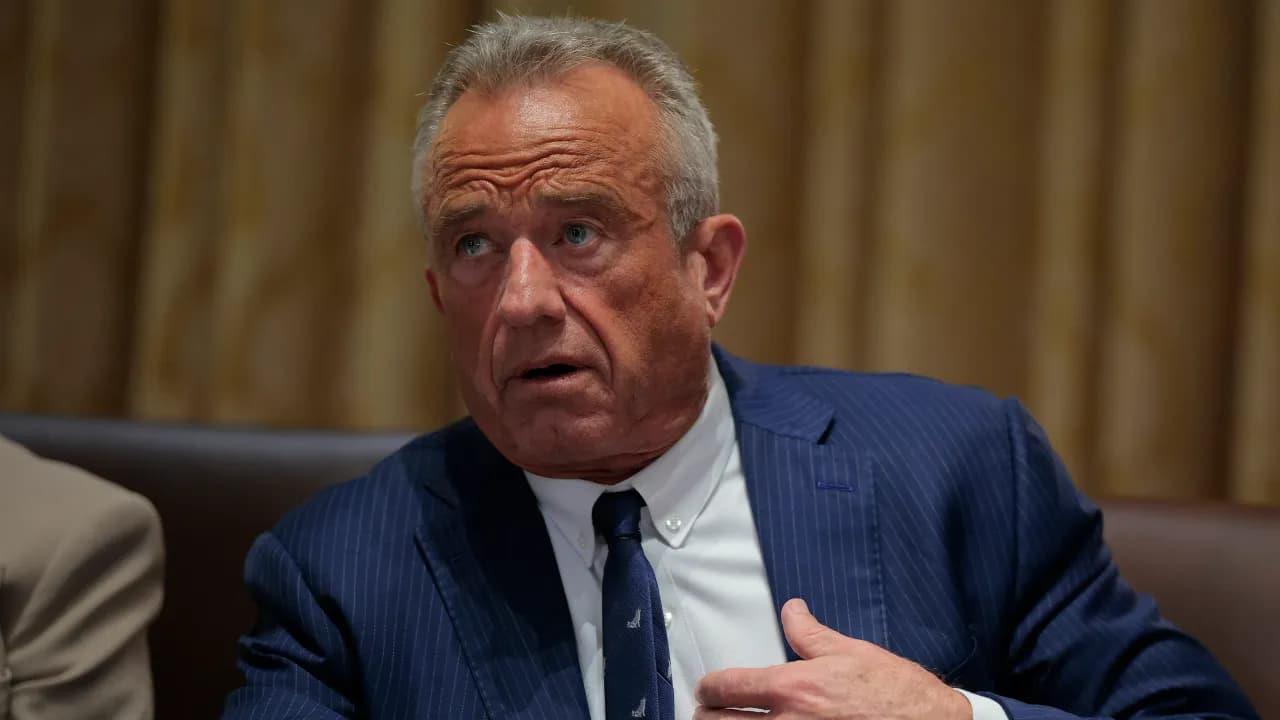
CDC In Crisis: Kennedy Pressured To Quit As States Revolt Over Vaccine Board Shake-Up
More than 20 health groups and medical associations urged U.S. Health Secretary Robert F. Kennedy Jr. to resign on Wednesday, warning that his sweeping changes to vaccine policy and recent moves at the Centers for Disease Control and Prevention (CDC) threaten decades of medical progress.
The joint statement followed criticism from multiple former CDC directors under both Republican and Democratic administrations, who said Kennedy's actions, which culminated in last week's firing of CDC Director Susan Monarez, are putting public health at risk, Reuters reported.
“Our country needs leadership that will promote open, honest dialogue, not disregard decades of lifesaving science, spread misinformation, reverse medical progress and decimate programs that keep us safe,” the groups said.“We are gravely concerned that American people will needlessly suffer and die as a result of policies that turn away from sound interventions.”
The letter was signed by the Infectious Diseases Society of America, the American Academy of Allergy, Asthma & Immunology, the American Public Health Association and the American Association of Immunologists.
Over 1,000 current and former employees of the Health and Human Services Department sent an open letter demanding that Kennedy either resign or be fired.
State-Level Responses
Amid the federal shake-up, states have begun to chart their own paths on immunization policy. California, Oregon and Washington on Wednesday announced the formation of the West Coast Health Alliance, which will issue unified vaccine recommendations guided by national medical associations, even if they diverge from federal guidance.
An alternative standard to the one set by the federal government could cause confusion among providers and patients, health experts warned, but state officials said they acted to prevent disruption to fall vaccination campaigns.
Erica Pan, California's state public health officer, said,“The dismantling of public health and dismissal of experienced and respected health leaders and advisors, along with the lack of using science, data and evidence to improve our nation's health, are placing lives at risk.”
Meanwhile, Florida announced plans to end all state vaccine mandates, including requirements for schoolchildren, marking another sign of growing divisions over immunization policy across the country.
A spokesperson for the Department of Health and Human Services sought to reassure providers, saying:“ACIP remains the scientific body guiding immunization recommendations in this country, and HHS will ensure policy is based on rigorous evidence and Gold Standard Science, not the failed politics of the pandemic.”
Policy Overhaul And Firings
Since taking office, Kennedy has withdrawn federal recommendations for COVID-19 vaccination in pregnant women and healthy children, and in June, he dismissed all 17 members of the CDC's expert vaccine advisory panel, the Advisory Committee on Immunization Practices (ACIP), replacing them with hand-picked advisers, including fellow vaccine skeptics. The move raised concerns over compromising the panel's independence.
Monarez, who was sworn in less than a month before her dismissal, said through a spokesperson that she was asked to rubber-stamp policy changes and resisted. Her firing triggered the resignation of four top CDC officials, citing pressure to support anti-vaccine positions advanced by Kennedy.
In a social media post on Wednesday, Kennedy defended his decisions, saying his mission was“to restore the CDC's focus on infectious disease” and“rebuild trust through transparency and competence.”
New ACIP Panel
Kennedy has reportedly selected seven new members for the ACIP, which advises on vaccine use after FDA approval and whose recommendations shape insurance coverage, Reuters reported, citing an internal CDC document.
Among the names listed is Raymond Pollak, a semi-retired transplant surgeon with a background in immunology, who confirmed he is under consideration. Others include Joseph Fraiman, an emergency medicine specialist; John Gaitanis, a pediatric neurologist; Catherine Stein, an epidemiology professor; Hillary Blackburn, a pharmacist; Evelyn Griffin, an obstetrician-gynecologist; and Kirk Milhoan, a pediatric cardiologist.
The group is expected to convene on Sept. 18, with votes scheduled on vaccines for hepatitis B, measles-mumps-rubella-varicella, and respiratory syncytial virus, according to the Federal Register.
Normally, the CDC director has final approval of ACIP recommendations, but Monarez's removal leaves that process uncertain.
On Stocktwits, retail sentiment for the Health Care Select Sector SPDR Fund (XLV) was described as 'extremely bearish' with 'low' message volume, while sentiment for the iShares Global Healthcare ETF (IXJ) was 'neutral' with 'normal' message volume.
So far this year, XLV is up 0.4% while IXJ has gained 2.8%.
For updates and corrections, email newsroom[at]stocktwits[dot]com.
Legal Disclaimer:
MENAFN provides the
information “as is” without warranty of any kind. We do not accept
any responsibility or liability for the accuracy, content, images,
videos, licenses, completeness, legality, or reliability of the information
contained in this article. If you have any complaints or copyright
issues related to this article, kindly contact the provider above.

















Comments
No comment